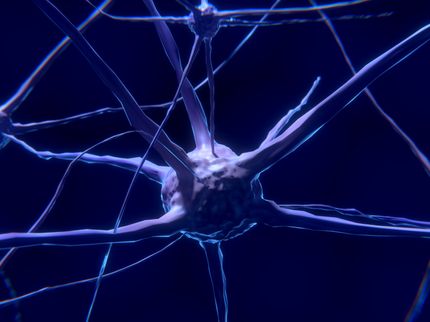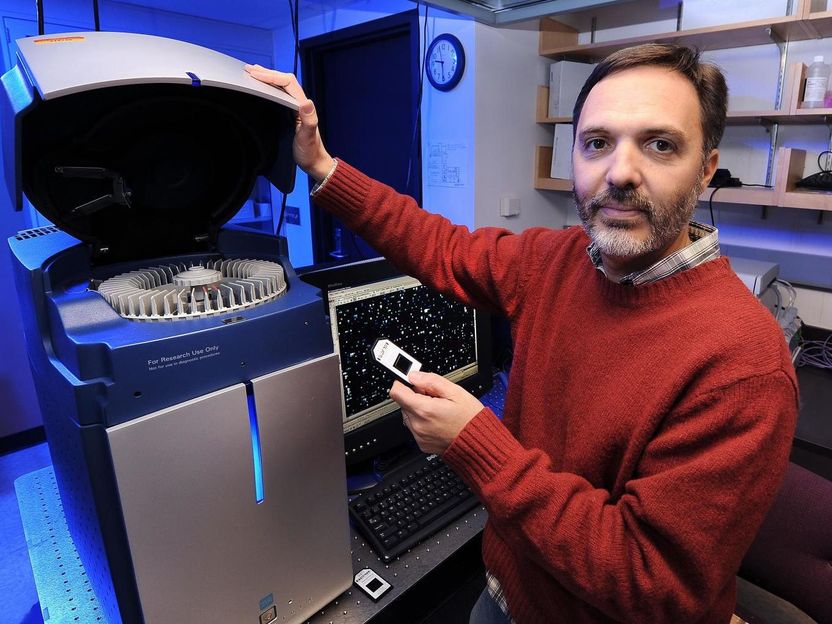Food in sight? The liver is already active!
Adaptation of the sugar metabolism begins in the brain
What happens in the body when we are hungry and see and smell food? A research team from the Max Planck Institute for metabolism Research has now been able to show in mice that adaptations take place in mitochondria in the liver after just a few minutes. Stimulated by the activation of a group of nerve cells in the brain, the mitochondria of the liver cells change and prepare the liver for the adaptation of the sugar metabolism. The results, which are published in the journal Science, could open up new ways of treating the widespread disease type 2 diabetes.
The researchers fed hungry mice. The mice could only see and smell the food without eating it. After just a few minutes, the researchers examined the mitochondria in the liver and found that processes that are normally stimulated by food intake were activated.
Mitochondria in the liver prepare themselves
The studies show that it is sufficient for the mice to see and smell food for a few minutes to change the mitochondria in the liver cells. This is mediated by a previously uncharacterized phosphorylation in a mitochondrial protein. Phosphorylation is an important modification for the regulation of protein activity. The researchers were also able to show that this phosphorylation also affects the sensitivity of the liver to insulin. The researchers have thus discovered a new signaling pathway that regulates insulin sensitivity in the body.
Nerve cells in the hypothalamus
The effect on the liver is mediated by a group of nerve cells known as POMC neurons. These neurons are activated within seconds by the smell and sight of food and signal the liver to prepare itself for the incoming nutrients. The researchers were also able to show that the activation of POMC neurons alone is sufficient to adapt mitochondria in the liver, even in the absence of food.
"When our senses detect food, our body prepares for food intake by producing saliva and stomach acid. We knew from previous studies that the liver also prepares for food intake. Now we have taken a closer look at the mitochondria in the liver cells, because they are essential cell organelles for metabolism and energy production, and found how surprisingly fast this adaptation takes place," explains Sinika Henschke, first author of the study.
Jens Brüning, head of the study and Director at the Max Planck Institute for Metabolism Research: "Our study shows how closely the sensory perception of food, adaptive processes in mitochondria and insulin sensitivity are linked. Understanding these mechanisms is also important because insulin sensitivity is impaired in type 2 diabetes mellitus."
Jens Brüning is also a research group leader at the CECAD Cluster of Excellence in Aging Research at the University of Cologne and Director of the Outpatient Clinic for Endocrinology, Diabetology and Preventive Medicine at Cologne University Hospital.
Note: This article has been translated using a computer system without human intervention. LUMITOS offers these automatic translations to present a wider range of current news. Since this article has been translated with automatic translation, it is possible that it contains errors in vocabulary, syntax or grammar. The original article in German can be found here.
Original publication
Sinika Henschke, Hendrik Nolte, Judith Magoley, Tatjana Kleele, Claus Brandt, Christine Hausen, Claudia M. Wunderlich, Corinna A. Bauder, Philipp Aschauer, Suliana Manley, Thomas Langer, F. Thomas Wunderlich, Jens C. Brüning; Food perception promotes phosphorylation of MFFS131 and mitochondrial fragmentation in liver; Science, 26. April 2024
Most read news
Original publication
Sinika Henschke, Hendrik Nolte, Judith Magoley, Tatjana Kleele, Claus Brandt, Christine Hausen, Claudia M. Wunderlich, Corinna A. Bauder, Philipp Aschauer, Suliana Manley, Thomas Langer, F. Thomas Wunderlich, Jens C. Brüning; Food perception promotes phosphorylation of MFFS131 and mitochondrial fragmentation in liver; Science, 26. April 2024
Topics
Organizations
Other news from the department science

Get the food & beverage industry in your inbox
By submitting this form you agree that LUMITOS AG will send you the newsletter(s) selected above by email. Your data will not be passed on to third parties. Your data will be stored and processed in accordance with our data protection regulations. LUMITOS may contact you by email for the purpose of advertising or market and opinion surveys. You can revoke your consent at any time without giving reasons to LUMITOS AG, Ernst-Augustin-Str. 2, 12489 Berlin, Germany or by e-mail at revoke@lumitos.com with effect for the future. In addition, each email contains a link to unsubscribe from the corresponding newsletter.





























































